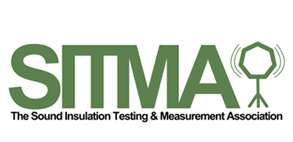Offices Nationwide

Sound Intensity
Sound intensity is measured in Decibels (dB). This is a logarithmic scale in which an increase of 10 dB gives an apparent doubling of loudness.
Sound pitch is measured in Hertz (Hz), the standard unit for the measurement for frequency. The audible range of sound for humans is typically from 20 Hz to 20,000 Hz, although, through ageing and exposure to loud sounds the upper limit will generally decrease.



Noise Disturbance
Building acoustics can help to mitigate the effects of noise disturbance which can have negative effects on health, well-being and general quality of life.
The Noise Policy Statement for England (NPSE) defines noise pollution as:
- Environmental noise: which includes noise from transportation sources. - Neighbour noise: which includes noise from inside and outside buildings. - Neighbourhood noise: which includes noise arising from industrial and entertainment premises, trade and businesses, construction sites and noise in the street.
This can be an important consideration for the location, design and construction of new developments.



Air Testing
As part of thermographic surveys we can also use an air Pressure testing kit to depressurise the building and help detect any air leakage within the property



Good Hearing?
A typical person with good hearing can hear from about 20Hz to 20kHz (the audio bandwidth). A person's voice will usually range from 500Hz to 2kHz.


Copyright 2025 E2 Specialist Consultants Limited
Company No. 06728970

































